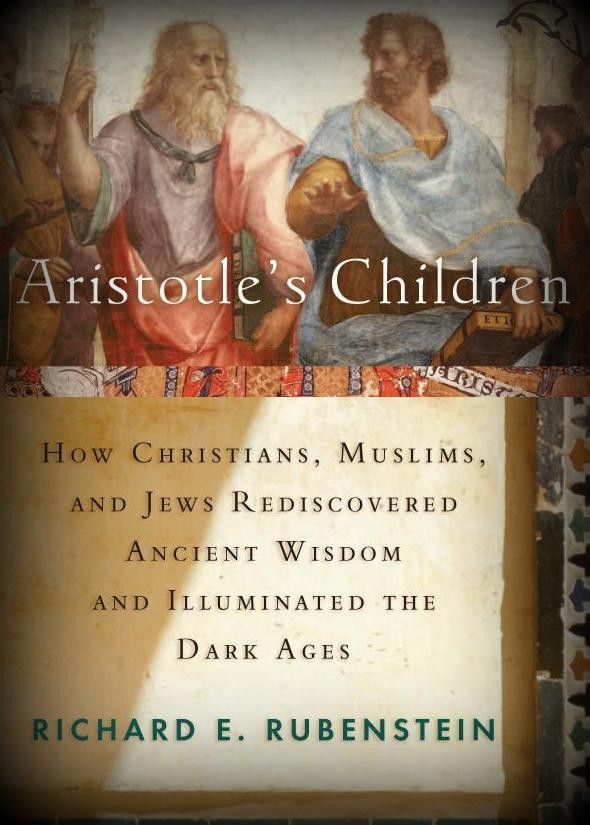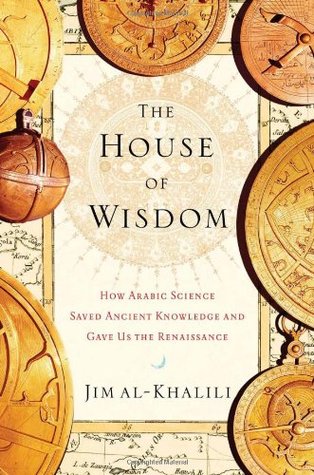|
Aristotle's Children: How Christians, Muslims, and Jews Rediscovered Ancient Wisdom and Illuminated the Middle Ages
By Richard E. Rubenstein Published in 2002 389 Pages Thibault’s Score: 4/5 I read Aristotle’s Children as part of my ongoing studies of Islam in the Middle Ages. When I picked up the book, I thought it would be similar to the House of Wisdom and cover Islamic Golden Age thought. Instead, this book discusses the transmission of Aristotle’s works throughout the Middle Ages. Instead, Islam is only mentioned in passing. Despite this, I thought that Aristotle’s Children made for a great read, especially for people interested in the history of philosophy. I’ve not read very much Aristotle - the only text attributed to Aristotle that I’ve finished is Politics. Reading Aristotle’s Children helped re-familiarize myself with Aristotle’s works, and better understand the history of his writing. There are two particularly stunning insights that Rubenstein lays out in the introduction. Both insights kept repeatedly hitting me over and over throughout the book, and have reshaped my way of thinking about philosophical and scientific progress. The first is the idea of a “monolith.” There is a common trope in sci-fi movies, such as 2001 Space Odyssey, where humans find artifacts from a more ancient advanced alien civilization. These artifacts enable humans to progress rapidly technologically. The reason why these stories resonate so strongly is because they actually happened. In the past, technological progress was not linear. Instead, there were pits and downturns. When people, during one of these long term technological downturns, rediscover the ancient works of an author such as Aristotle, they have their own “monolith moments.” The most obvious examples being the Islamic Golden Age’s translation movement and the Italian Renaissance where interest in the ancient classics was revived. The second revelation was that the Catholic church has promoted, rather than opposed, historical progress. In modern pop culture, we imagine a dichotomy where the religious authorities are opposed to scientific and technological progress. This idea, however, only comes from the post-reformation world where reactionary protestants and Catholic Jesuits actively fought change. By contrast, in the Middle Ages, much of the progress came from the church itself. The great thinkers of the Middle Ages and Renaissance were funded, promoted, and endorsed by the church. A similar parallel phenomenon existed at the same time in the Islamic world, where the secular authorities and religious scholars worked together to promote the Islamic golden age. Each chapter is written as a little history of a major thinker who supported or opposed Aristotelean thought. The book opens with a biography of Aristotle himself, and a cursory summary of his thoughts and writings. It then covers the lives and thoughts of later thinkers such as Boethius, St. Augustine, Peter Abelard, and St. Thomas of Aquinas. What I found to be the most fascinating was Rubenstein’s description of the loss and regaining of Aristotelian knowledge. At times, his work had slipped into obscurity, with all but his most famous tracts forgotten. Later, Aristotle would be placed on a pedestal, blindly followed by scholars regardless of the actual merits of his ideas. It really goes to show that the authors of the past we remember today are different to those remembered in forgone days. Another aspect I found fascinating was how various political and intellectual movements throughout medieval Europe would either support or reject Aristotle. Late in the Middle Ages, there would be significant intellectual battles fought in the universities of France and England over the degree to which Aristotle should be embraced or rejected. Overall, this is a fascinating read. I recommend it to people interested in the history of philosophy, or to people doing a more in depth study of the Middle Ages.
0 Comments
The House of Wisdom: The remarkable story of how medieval Arab scholars made dazzling advances in science and philosophy and of the itinerant Europeans who brought this knowledge back to the West
By Jonathan Lions and Jim Al-Khalili Published in January 2009 320 Pages Thibault’s Score: 4/5 I decided to read this book after I saw Jim Al-Khalili’s 2015 Al Jazeera documentary series about the Islamic Golden Age. Jim Al-Khalili is an atheist Iraqi British physicist living in the UK who, in addition to studying science directly, also studies the history of science. I found his documentary series to be very interesting, and his book, accordingly, did not disappoint. This book covers how Islam went from a religion followed by backwards Arab nomads into the world’s most advanced reigning civilization for centuries. Al-Khalili’s main argument is that the medieval Muslims, like other civilizations that rapidly progressed, did not do so from scratch. Instead, they did so by incorporating the knowledge of past civilizations such as the Greeks, Romans, Indians, Persians, and Chinese into their own. The House of Wisdom’s main focus is the translation movement, which was funded by the Caliphs in order to transcribe the learning of other civilizations into Arabic. Al-Khalili argues that Islam achieved its high level of progress by understanding and assimilating this information, then building upon it. Interestly enough, this model of civilizational progress seems to hold true for other civilizations - the Italian renaissance would, in turn, draw its own inspiration from the Islamic Golden Age. In this book I learned about a wide variety of early scientific advancements made by the Muslims. This includes extensive progress in medicine, optics, and chemistry. Al-Khalili also covers Islamic scholarship in other areas such as theology and philosophy, albeit in less detail. Most interesting was how the Muslim scholars integrated the Indian concept of “zero” with Greek mathematics to create modern math as we would understand it today. If it hadn’t been for the Arabic ability to integrate knowledge from different regions in Eurasia, the development of mathematics would have been significantly delayed. Even modern scientific language often originates from Arabic. For example, the word “algebra” comes from the bastardized Arab word “al-jabr” which means the union of broken parts. Other obvious examples starting with “al” include “alchemy,” “alkaline,” and “alcohol.” Many stars were first named and observed by Muslims, as well as a wide variety of botanical names. The scientifically curious and philosophically pondering Islam from the Abbasid Golden Age is long gone. Now, it has been replaced with a backwards and inwards looking religion that fails to produce quality scientists and thinkers. The House of Wisdom offers modern readers a glimpse of a time when Islam was very different, and when Muslims led the world’s thinkers. Overall, this book is a must read for anyone interested in several categories of knowledge: the history of science, Islam, or the Middle Ages. This book is well written, easy to listen to as an audiobook, and accessible to just about anyone. |
Thibault SerletMost of my articles are book reviews, but I also write about many other topics. Archives
December 2023
Categories |


 RSS Feed
RSS Feed